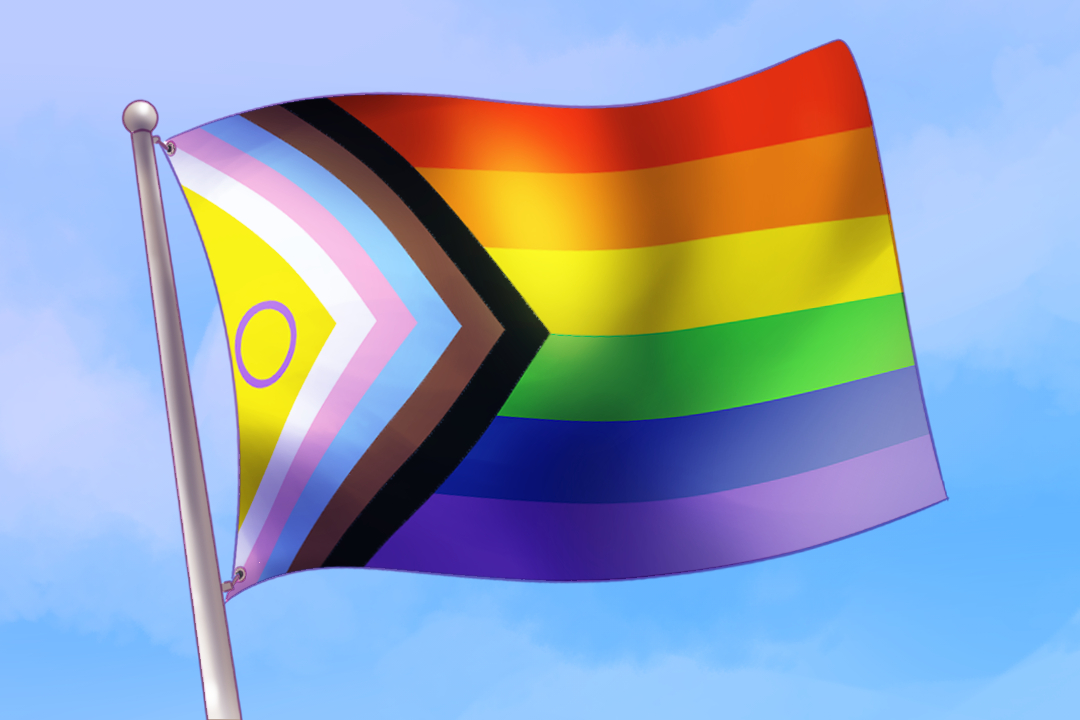As another June full of rainbow capitalism and discourse about kink in parades came to a close, I wondered how the transgender women of colour who spearheaded the Stonewall Riots of 1969 — such as Marsha P. Johnson, Sylvia Rivera, and Miss Major — would react to the current state of Pride. Although LGBTQ+ history has always been Black and brown, white hegemony — which includes whitewashing and the prioritization of white cisgender LGBTQ+ folks — has led to the erasure and alienation of LGBTQ+ people of colour in their own community.
In a thinkpiece for NBC, writer and activist George M. Johnson claimed that “although white queer people share in [Black] queer oppression, they are still beneficiaries of white supremacy — and are not above wielding that power in our ‘safe spaces.’ ” Johnson emphasized that “the intersection of race creates additional barriers like access to healthcare, medication and a proximity to higher infection rates” — a reality exemplified by the fact that Black Americans comprised only 12 per cent of the US population in 2018, yet they made up 43 per cent of all HIV diagnoses.
Unfortunately, as Johnson recounted, HIV began to feel more and more like an afterthought after it stopped being known as a primarily white gay epidemic. White LGBTQ+ folks must confront their authority within LGBTQ+ spaces in order for LGBTQ+ folks who identify as Black, Indigenous, and people of colour (BIPOC) to feel safe within these spaces. Only then can the community present a united front and create meaningful change.
In 2014, Carmen H. Logie of the University of Toronto and Marie-Jolie Rwigema of York University conducted a study that determined that LGBTQ+ women of colour experience intersectional stigma, such as homophobia, racism, and sexism, on a daily basis. Participants’ narratives revealed that “white privilege shaped the representations of women of colour in a particular way that promoted their exclusion from white [lesbian, bisexual, and queer] spaces and broader society.”
LGBTQ+ women of colour especially lack meaningful media representation. They are often portrayed as emotional support lapdogs for a straight protagonist rather than as their own autonomous beings. In the rare instances LGBTQ+ characters are meaningfully represented, such as in Glee and Modern Family, the characters in question are almost always white.
According to Logie and Rwigema, “white privilege constructs whiteness as normative and central to lesbian, gay, bisexual, and queer identities,” which leads to the erasure of LGBTQ+ people of colour. LBGTQ+ women of colour, in particular, are further marginalized by constructions of femininity and subservience, as women of colour are often perceived as aggressive, emotional, and hypersexual.
In an interview with Los Angeles Times, Laci Mosley described the vitriol she has received for portraying a Black and pansexual character on the iCarly revival, which began airing just this past June. “[My character is] not a replacement of Sam,” Mosley said, in response to people labelling her character as a “Black replacement” for Carly’s best friend in the original series. “She’s a completely different person. She’s queer, she’s Black — and not in a stereotypical way.”
As if securing the role of a fully developed LGBTQ+ person was not hard enough, actors of colour are forced to face revilement and abuse from those outside the industry as well. Because the normative idea of an LGBTQ+ person is white, roles that bring into consideration the intersections of sexuality and race are seen as political statements rather than reflections of real life experiences.
Unfortunately, Pride month is a bittersweet affair for many LGBTQ+ BIPOC folks. Every year, we are stuck between feeling hopeful because of the progress we have made for LGBTQ+ rights and knowing that progress does not entirely apply to us. While white LGBTQ+ folks weaponize whatever marginalization they may experience in order to deflect having to own up to their white privilege, LGBTQ+ people of colour struggle to find acceptance in both racialized communities and queer communities.
As Johnson expressed, “We have long been burdened with the work of removing homophobia from Black communal spaces while also taking up the fight against racism in all spaces.” White LGBTQ+ folks must first acknowledge their privilege within LGBTQ+ spaces and as beneficiaries of white supremacy before LGBTQ+ people of colour can look at the rainbow flag without any apprehension — just pure and unadulterated pride.
Catherina Tseng is a third-year English literature, creative writing, and classical studies student at UTSC.


